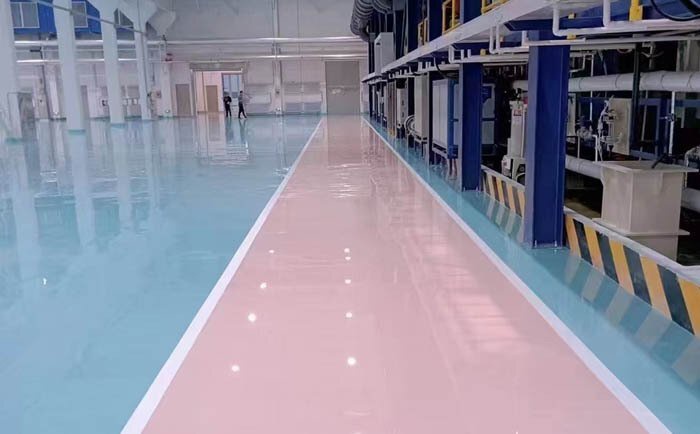Matters needing attention before brushing water-based epoxy floor paint on cement ground
Dec 03, 2024
In modern buildings that pursue both beauty and practicality, water-based epoxy floor paint has become the first choice for floor decoration and protection in many places due to its environmental protection, wear resistance, corrosion resistance and other characteristics. However, the preparation work before construction is crucial and directly related to the final effect and service life of the floor. So, what should be paid attention to before applying water-based epoxy floor paint on cement floors?
1. Floor cleaning and repair
Before applying water-based epoxy floor paint, the first task is to ensure that the cement floor is thoroughly cleaned and repaired. Cement residues, mortar, grease and other impurities on the ground need to be thoroughly removed, especially grease impurities, which need to be wiped clean with a special solvent to avoid affecting the adhesion of the coating. At the same time, the ground is polished to increase the surface roughness and improve the adhesion of the coating. In addition, check whether the ground has hollows, cracks or sanding. If so, it needs to be repaired in time to ensure that the ground is flat and solid.
2. Environmental conditions and primer painting
The construction environment also has a profound impact on the quality of water-based epoxy floor paint. Before construction, it is necessary to ensure that the ambient temperature is above 4°C, the optimal construction temperature is 10-25°C, and the humidity should not exceed 80%, and construction on rainy days should be avoided. At the same time, the ground needs to be kept dry and the water content is less than 10%. Primer painting is the basis of floor construction. It is necessary to select qualified water-based epoxy primers and apply them evenly with a brush. Pay attention to following a certain direction to ensure the beauty and uniformity of the coating. After applying the primer, you need to wait for it to fully cure before proceeding with subsequent construction.
Read More
